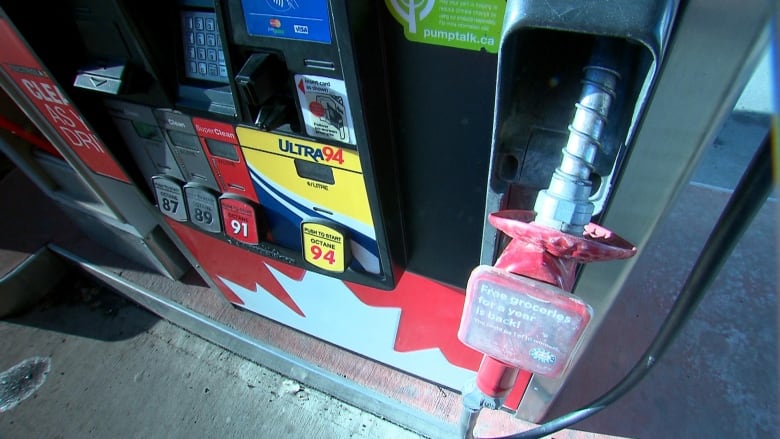Vote by MLAs paves way for increase in P.E.I.'s carbon levy
Pump prices could rise as soon as Monday once bill receives royal assent

A bill to increase P.E.I.'s carbon levy passed second reading in the legislature Friday, in some ways more than a year overdue.
The province hasn't increased its federally mandated carbon price since April 1, 2020, meaning it is currently taxing carbon at a rate of $30 per tonne of emissions.
The federal carbon price dictated by Ottawa – supported by a Supreme Court of Canada ruling confirming the federal government has the authority to impose that price on the provinces – is $50 per tonne.
Once P.E.I.'s changes receive royal assent, which could also come Friday, the increase in the carbon levy will come into effect three days later.
That means as soon as Monday, Island drivers could be paying an additional 5.1 cents per litre of gas and an extra 6.2 cents per litre of diesel.
Those increases include HST, which is charged on top of the carbon levy. The increases do not include whatever other changes in the price of fuel might be announced in the interim.

Fuel prices are regulated in P.E.I. by the Island Regulatory and Appeals Commission, which announced another change in fuel prices at midnight Thursday, the fourth in the span of a week. Regular price changes are announced weekly.
The minimum price of a litre of self-serve gasoline rose 9.2 cents to $1.942.
Diesel and heating oil prices, which both leaped up more than 30 cents in the last week of April, were down.
Amid calls from both opposition parties for the government to return more – or even all – of its carbon tax revenues to Islanders, Premier Dennis King declared the vote on his government's plan would be a confidence motion.

An Act to Amend the Climate Leadership Act, the bill containing the increase in the carbon price, passed with all eight Green MLAs and all four Liberals voting against it, and all 14 Progressive Conservative MLAs in the house voting in favour.
The Green Party wants the province to return all carbon levy revenues to residents. The finance minister has said that would amount to about $800 per year per household.
Before the vote on Friday, Liberal MLA Gord McNeilly proposed a "middle ground," suggesting the province provide rebates of $500 per household.
What government has proposed is a payment of $140 for households below a particular income threshold, with other carbon tax revenue being directed to programs helping Islanders transition to renewable energy, through rebates on heat pumps and electric cars, and programs like subsidized rural transit service.
The details around the household carbon rebates are included in a separate bill, also called for debate in the house on Friday.